Club Whispers
8700 Lake Forest Blvd.New Orleans LA 70127
As New Orleans’ hip-hop grew into a national force in the 1990s, its biggest players—including No Limit and Cash Money Records—showed out at Club Whispers. Located in a strip mall in New Orleans East, Whispers was the kind of upscale venue that made teenagers like Ms. Tee, the first woman signed to Cash Money, feel grown up when they talked their way inside: “We looked at Whispers like it was that classy crowd,” she told A Closer Walk.
Some of the city’s top DJs, including Captain Charles, spun records here, and the mid-90s lineups of No Limit and Cash Money got on the mic, as did bounce artists like DJ Jubilee and Partners N Crime.
The rapper Mista Meana of Partners N Crime told A Closer Walk:
All the ballers and drug dealers and hustlers, they came and fronted they best at that spot, so to be in there, and be amongst that, you felt of the elite group of people … It was like a scene … Cars spinning in the parking lot over and over, the line is…down the street … They opened the doors for us and rolled out the red carpet for us and let us come in. It had us feeling like above the world.
Around 1995, when No Limit Records founder and rapper Master P moved his operation from the Bay Area to his native New Orleans, he put on shows at Club Whispers to help establish the label’s presence in town.
He also released a compilation, Down South Hustlers: Bouncin’ and Swingin’, featuring New Orleans artists including Partners N Crime. Mista Meana wrote that Master P failed to pay them for their track, and confronted him about it at Whispers. Things didn’t get physical, but the conflict kept PNC from joining No Limit and benefiting from the historic national distribution deal Master P secured in 1996.
During the same period, Cash Money Records co-founders Bryan “Baby” Williams (later called Birdman) and Ronald “Slim” Williams held regular concerts at Whispers. Angling for a national deal of their own, they overhauled their label’s roster and rebuilt around BG, Lil Wayne, Juvenile, and Turk—the Hot Boys. Turk wrote about making his first live appearance with Cash Money here at age 14 in 1995:
This wasn’t the hops or rap battles I was used to doing my thang in. The entire club was packed with grown motherfuckers, and I wasn’t old enough to come anywhere near this place … This was really the first time I had gotten a glimpse of how much power and respect Slim and Baby had amongst other street n****s….
Baby and Slim had to talk Momma into letting me perform that night under one condition: I had to be back home before it got too late. Yeah, right. This was Slim and Baby! They called Momma after the concert at 3:30 a.m. and she was pissed and promised me that I would never do another concert. But I was young and thuggin, so after a few weeks I was back in the studio without Momma’s permission, but Baby and Slim didn’t know.
Cash Money’s association with the club continued into 1997, when, on BG’s classic “Get Your Shine On,” Baby rapped, “I’m in Club Whispers with a $10,000 bar tab.” Their national distribution deal came the next year.
Violent crime and closure
In 1996 Roderick Smith, CEO of the local rap label Hard Head Records was shot and fatally wounded in the parking lot of Whispers. The drug kingpin Richard Pena, a one-time business associate of Smith and a would-be player in the music industry, confessed to paying for the murder. It was one of several high-profile violent crimes in and around Whispers that led to a years-long public campaign to close the club.
In response, the club attempted to rebrand as Whispers 2000, and temporarily shifted their musical focus to R&B. (Hip hop shows returned before too long, including an amateur night with cash prizes and record deals up for grabs.)
The club also instituted a dress code and raised the minimum age to 25, but at least one patron evaded the requirement: 22-year-old New Orleans Saints running back Ricky Williams was spotted here in 1999 with members of No Limit, which had expanded from music into athlete management, among other ventures.
Whispers was popular among Saints players for its entire run: at a hearing before the Alcoholic Beverage Control Board in 2000, former safety Vince Buck testified on the club’s behalf, saying that he and fellow Dome Patrollers Pat Swilling and Ricky Jackson never saw any crime there. The police told a different story, and the club (by then called Illusions) was shut down.
In 2002 a developer tried to open a dinner and jazz club in this space, but the Times-Picayune reported that the City Councilperson for the district denied the permit, “saying neighbors remain too traumatized by memories” of the violence at Whispers.
Cubby’s, Harvey’s, and the early years of Club Whispers
When the club originally opened as Cubby’s in 1986, catering to white patrons with cover bands, the Times-Picayune marveled at its “colored light show with lazers [sic] and light scanners on an oak dance floor,” “big screen television that allows patrons to watch what’s happening on the dance floor,” and “five-prong pedestal chairs (so you can’t lean back and fall over).”
Before 1987 was out, the venue became Harvey’s, a home base for the band Harvey Jesus and Fire. While its repertoire concentrated on mainstream hits, bandleader Harvey Jesus was well-versed in New Orleans R&B: he’d been a member of The Jokers, stalwarts of the local dance circuit for white youngsters in the early years of rock ‘n’ roll.
Owner Al Chimento rebranded as Club Whispers in 1990 as more Black residents moved to New Orleans East. A 1990 television ad asserted: “It’s new! It’s big! The place to be seen is Club Whispers.”
Initial musical offerings included the Batiste Brothers Band and a jazz competition won by saxophonist Victor Goines, whose trio featured renowned drummer Brian Blade. The reggae band Irie Vibrations held a Monday night residency for several years, even as the hip-hop scene started heating up on weekends.
Videos
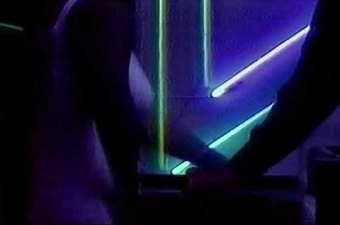
Television ad for Club Whispers from 1990, the year it rebranded.
Video posted by THE HELICOPTER SPIES.
Television ad for Club Whispers from 1990, the year it rebranded.
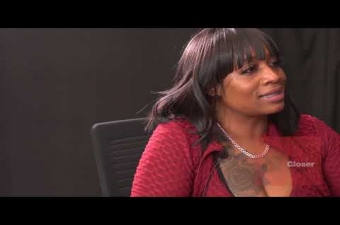
Ms. Tee, the first woman signed to Cash Money Records, in conversation with A Closer Walk editor Jordan Hirsch about Club Whispers and much else.
Video by A Closer Walk.
Ms. Tee, the first woman signed to Cash Money Records, in conversation with A Closer Walk editor Jordan Hirsch about Club Whispers and much else.
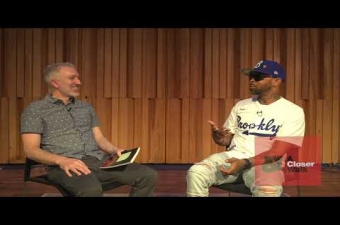
Mista Meana of Partners N Crime in conversation with A Closer Walk editor Jordan Hirsch about Club Whispers and much else.
Video by A Closer Walk.
Mista Meana of Partners N Crime in conversation with A Closer Walk editor Jordan Hirsch about Club Whispers and much else.
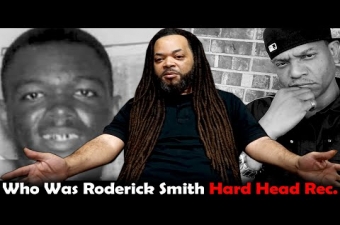
"What Really Happened to MC L and Hard Head Records" by Video Wayne tells the story of the label and the shooting of CEO Roderick Smith outside Club Whispers.
Video by RaRe Reports.
"What Really Happened to MC L and Hard Head Records" by Video Wayne tells the story of the label and the shooting of CEO Roderick Smith outside Club Whispers.
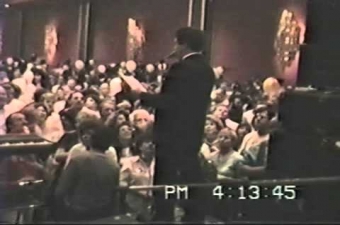
The Jokers' 1989 reunion, rehearsals for which were at bandmember Harvey Jesus' club a year before that space became Club Whispers.
Video posted by New Orleans Airwaves.
The Jokers' 1989 reunion, rehearsals for which were at bandmember Harvey Jesus' club a year before that space became Club Whispers.
Images











